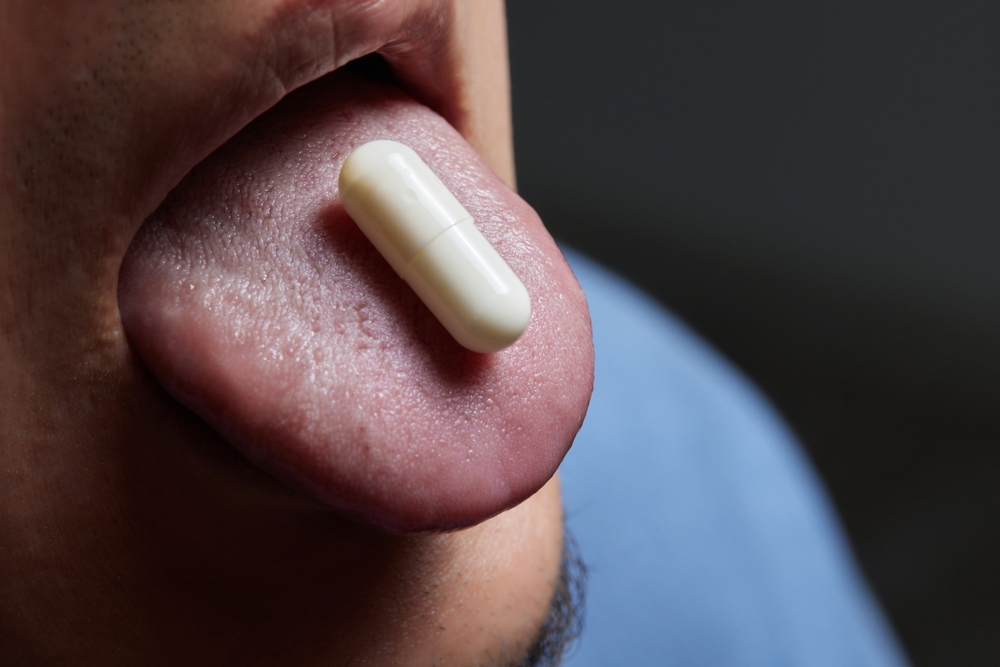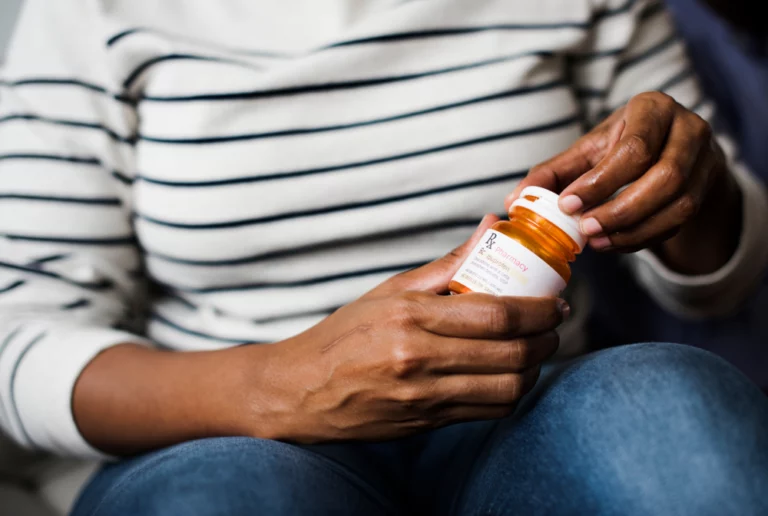Have you heard of phenibut? It’s a common nootropic that has recently started popping up in the news with regards to its possible dangers. Despite its growing popularity, many people aren’t familiar with this substance. In this article, you’ll discover all of the information you need to know about phenibut before using it. You’ll find out about its history, how it works, its potential side effects, and more. Keep reading to discover all of the details, then decide for yourself if this is the nootropic for you.
What is Phenibut?
Phenibut is a common over-the-counter (OTC) dietary supplement that is sold as a nootropic. It is legal in the U.S., but only in the form of a dietary supplement. It is not approved by the FDA for any kind of medical treatment. Phenibut was first discovered in Russia in the 1960s, and it has been used as an effective treatment for anxiety and stress since the early 90s.
It is widely used in Eastern European countries such as Russia, Latvia, Ukraine, and Kazakhstan, where it is known by names such as Noofen, Fenibut, and Anfiven, as a means to achieve relaxation and focus early on in space exploration. It became popular in America’s nootropics community in the late 2000s, and it remains one of the most common nootropics today.
How Does it Work?
Like many nootropics, phenibut affects the brain by enhancing the number of neurotransmitters, such as GABA, dopamine, and serotonin. It also has anti-inflammatory and anti-anxiety properties. These properties make this drug an interesting supplement for people who are dealing with anxiety and stress. It can help you relax and feel calm while improving your mental clarity. Because it crosses the blood-brain barrier more effectively than GABA, phenibut inhibits neural excitation, depresses the central nervous system, and induces a state of euphoria when consumed in large enough amounts.
When taken in smaller amounts, phenibut produces mild euphoric effects, which may make you feel less depressed. It’s important to note, though, that phenibut has very little influence on the way your brain makes serotonin, dopamine, or GABA. It simply enhances the levels of these neurotransmitters that are already present in your brain.
Is Phenibut Legal?
Phenibut is a prescription tranquilizer available in Russia and other Eastern European countries that is used to treat various medical conditions. It is neither medically prescribed or banned by law in the United States and the European Union. Because phenibut is basically a string of amino acids, the FDA categorizes it as a dietary supplement comparable to vitamins and minerals in the United States.
It is, therefore, possible to purchase phenibut online without any legal restriction. However, the substance should not be considered safe just because it can be purchased legally and without regulation. It has a variety of unwanted clinical effects in overdose and a withdrawal symptom with long-term use.
Is Phenibut Abused?
Phenibut is frequently misused due to its promotion as having a variety of claimed “desirable” benefits, for example:
- It produces a mild euphoria
- Promotes calmness and relaxation
- Increases confidence
- Increases sociability
- Increased focus
- Improves memory
It is reported that the results of using phenibut can last the whole day, although its half-life is only five hours. It is believed that this is due to the fact that its effects on the brain are still there even after it is eliminated through the kidneys. Websites that sell phenibut tend to emphasize its ability to decrease anxiety and improve cognitive performance. Additionally, they point out that phenibut won’t show up in any regular drug screenings.
Does Phenibut Deplete Serotonin
Research found that Phenibut did not have a significant impact on the levels of gamma-aminobutyric acid (GAB), serotonin, and dopamine in different brain regions. However, it did result in a moderate reduction in the level of norepinephrine in the hippocampus.
Does Phenibut Show Up on a Drug Test?
It is not possible to identify Phenibut through regular drug tests. Currently, there are no commercially available urine drug immunoassays that can detect the presence of Phenibut in the body. However, with an increasing need for such tests, it is possible that specific groups might begin to test for the drug in the future.
Phenibut Safety
Like many dietary supplements, phenibut is considered to be relatively safe. It’s important to keep in mind that this doesn’t mean that this drug is safe for everyone. The Centers for Disease Control and Prevention (CDC) report that people should only take dietary supplements that have been proven to be safe and effective by the scientific community. One study concluded that, out of 2,885 people who took phenibut, 5 people (0.13%) experienced a seizure. Seizures are a serious medical condition, and it’s important to rule them out before assuming that a supplement is to blame.
How Long Does it Take to Kick In?
When taken in capsule form or as a powder mixed with a liquid, phenibut takes about two hours to take effect. However, activation time varies depending on the method of administration, with sublingual administration (absorbed through the skin via the blood) being faster, at an average rate of 30 minutes. Its peak effects occur, on average, four to six hours after administration.
How Long Do Its Effects Last?
On average, its primary effects last between two and five hours after activation. However, the duration of phenibut depends on various relative factors, such as age, body size, dosage amount and tolerance.
How Long Does Phenibut Stay in Your System?
Phenibut has a half-life of around five hours. The time it takes for 50% of a drug’s active component to be metabolized is referred to as half-life. The concentration of the drug in the body is halved after around five hours after the initial dose, with a dosage of 250 mg being reduced to 125 mg, for example.
The half-life process continues excreting 50% of the remaining drug from your system at each interval, and you should be aware that the other half isn’t metabolized for another five hours. In this scenario, another five hours passes and you metabolize an additional 50% of the remaining 125 mg, leaving about 62.5 mg behind.
Therefore, following ingestion of 250 mg of phenibut, a small amount in the body would remain 36 hours later—however, this may differ depending on how long it’s been taken for, the person’s metabolism, and so on. It can stay in the body for up to 26 hours, but the duration over which it has been taken can affect how long it remains detectable.
Is Phenibut Addictive?
Phenibut use has a high potential for both physical and psychological dependence, tolerance, and withdrawal, which develop quickly in certain cases. Physical dependence occurs when GABA and dopamine receptors are stimulated, producing euphoric results and subsequent compulsion and abuse. Seizures, hallucinations, and psychosis may result from physical dependence, which can be life threatening.
Medical supervision is required when discontinuation is desired. Psychological dependence occurs when phenibut is used to perform certain cognitive tasks, engage in social interactions, or simply sleep, among other activities. The substance is felt to be needed to continue these activities.
Dangers of Phenibut Use
Research has revealed that phenibut could be toxic and hazardous. From 2009 to 2019, approximately 1,320 reports regarding phenibut exposure were made to poison control centers throughout the US. Out of these, 40.2% of the calls were from adults aged 18 or higher, who had taken phenibut in conjunction with another substance.
Out of the reported cases, 50% had mild symptoms that did not persist. However, 80 (6.2%) had a comatose state and for every 8 cases, there were potentially life-threatening effects, including 3 fatalities.
Phenibut Withdrawal
Withdrawal symptoms occur once you stop taking phenibut after becoming dependent and tolerant. Withdrawal symptoms may occur several days after the last dose is taken. In most cases, phenibut withdrawal is similar to that of benzodiazepines. Rebound effects are the most common withdrawal symptoms, which are a recurrence of the symptoms that phenibut was initially used to treat (anxiety, etc.).
Withdrawal symptoms including anxiety, insomnia, and low dopamine and other neurotransmitter levels are common in long-term users as a result of their nervous systems no longer producing healthy amounts of GABA on their own, in addition to producing lower amounts of dopamine and other neurotransmitters. Symptoms include:
- Anxiety
- Insomnia
- Depression
- Agitation
- Tachycardia (high heart rate)
- Psychosis
- Fatigue
- Anorexia
Withdrawal from Phenibut depends on several elements, including the amount and frequency of use, the taper schedule, and the consumption of other supplements or medications. Acute withdrawal symptoms usually last between two days and two weeks, but lingering effects can last for several weeks if the individual is severely dependent or tolerant to the drug. When post-acute withdrawal symptoms (PAWS) occur due to long-term consumption of Phenibut, they are often mental, manifesting as anxiety and depression.
Is it for You?
If you’re looking for a nootropic that is effective for anxiety and stress relief, then phenibut is worth a try. It has a long history of use as a medication, and it has very few negative side effects. However, there are a few reasons why you may want to try another nootropic instead. First, phenibut has a very low safety rating, so it’s important to do your research and use it wisely. Phenibut is also not a smart drug. It only affects the brain indirectly, by enhancing chemicals already present in your brain.
How to Prevent Phenibut Abuse
In order to know the safest and most effective way to use phenibut, it is essential for oversight organizations to be more engaged. For instance, government-sanctioned research and studies conducted on people can help figure out:
Despite the potential benefits of phenibut, any potential side effects or reactions with other substances, appropriate dosage, and the quality of the product is unknown. The FDA and DEA have established rules for how new substances should be brought into and assessed in the American market.
Directions for Use
Phenibut is sold as a dietary supplement, so there is little regulation over how much of it can be sold or what conditions it can be used for. This means that there is a lot of variation in how it’s packaged and sold, which can make it hard to find.
The best way to find phenibut is to look for it online. Make sure that you’re buying from a reputable supplier that offers a money-back guarantee. While phenibut is not addictive, it’s possible to build a tolerance to it. In order to avoid developing a tolerance, it’s recommended to take a lower dose every few days until you feel comfortable taking it again. Phenibut should be taken 30 – 60 minutes before bedtime. It can also be taken with a full meal if you prefer.
What Should You Not Take Phenibut With?
According to evidence, people who combine phenibut with other substances, especially opioids or central nervous system (CNS) depressants like alcohol or sedatives, may undergo more intense withdrawal symptoms.
Phenibut Side Effects
Like many nootropics, phenibut is considered to be safe and non-toxic. However, it is possible to build a tolerance to it, so it’s important to keep in mind that it’s not going to fix everything. Tolerance can lead to side effects, including insomnia, headaches, and less motivation. It’s also worth noting that people who use phenibut regularly may experience a decline in mood and interest.
Phenibut Alternatives
It is assumed that the primary activity of Phenibut is associated with its capacity to act on GABAB receptors and promote the stimulation of dopamine receptors, thereby producing a relaxing feeling combined with increased energy, focus, and concentration. Although there is no natural substance that can bring about all of these consequences, some can generate analogous or combined effects. Below is an example of the various nutritional or botanical elements that could be utilized either separately or together as a substitute for Phenibut.
Y-aminobutyric acid
A common substitute to phenibut is γ-aminobutyric acid (GABA), its natural relative and agonist of the GABA receptor. Its effects are not fully understood yet, and it is usually accepted that GABA is not able to pass the blood-brain barrier. Nevertheless, studies have shown that GABA can bring about a sedative and anti-anxiety effect that can be employed for conditions like anxiety, sleeplessness, and hyperactivity. Some believe that it can also affect the brain by influencing the enteric nervous system and the subsequent relationship between the gut and the brain. Additionally, when taken with theanine, GABA appears to reduce the time required to fall asleep and enhance non-rapid eye movement sleep.
Melatonin
Melatonin, a neurochemical that is frequently viewed as a hormone, is made in the pineal gland from tryptophan by a series of processes. These reactions are initiated by darkness and hindered by light, indicating that melatonin may be involved with controlling the body’s sleep cycle, the circadian pattern, and other bodily functions. Studies have demonstrated that melatonin enhances sleep quality, prolongs total sleep time, and reduces the amount of time it takes to fall asleep (SOL). A meta-analysis revealed that when melatonin was supplemented at a dose of 5 mg at 10 pm, the sleep-onset latency was decreased and the duration of sleep was augmented, indicating that sleep quality was improved.
L-theanine
Research has revealed that L-theanine, an amino acid typically sourced from green tea, can help boost relaxation and restful sleep. A study conducted on those suffering from major depressive disorder (MDD) showed that daily intake of L-theanine over an eight-week period decreased anxiety, lowered depressive symptoms, and improved sleep issues. In another double-blind and placebo-controlled trial, effects of L-theanine supplementation on healthy adults were tested when they were exposed to a stressor. The findings revealed that the use of L-theanine not only reduced the subjective stress reaction but also decreased the salivary cortisol response to the stressor, thus confirming the anti-stress benefits of L-theanine.
Trust Knoxville Recovery Center
Phenibut is a popular over-the-counter nootropic that has recently received a lot of attention due to its possible dangers. It is legal and sold as a dietary supplement, but it has very few proven benefits and is often sold as a miracle cure. It simply enhances the levels of chemicals already present in your brain. It’s also important to keep in mind that phenibut has a very low safety rating, so use it wisely.
Addiction can affect anyone. If you or a loved one are currently struggling with drug use or an addiction, help is available! We encourage you to reach out to the professionals at Knoxville Recovery Center to learn more about our personalized treatment programs and mental health services.
Knoxville Recovery Center was founded from firsthand experience of addiction and recovery, with a mission of providing a space where people can heal from addiction and other disorders in a compassionate, creative, open-minded, and heart-centered environment. We believe recovery is always possible. Our experts work with you to design a treatment plan that fits your needs. Common treatment programs include:
- Intensive Outpatient Programs (IOP)
- On-site Detox
- Full-time Addiction Treatment on campus
- Mental Health Treatment
- Aftercare Services
Contact us today for more information about how our programs and services can help you get your life back on track. You no longer have to struggle with substance abuse on your own. We are here to help.













